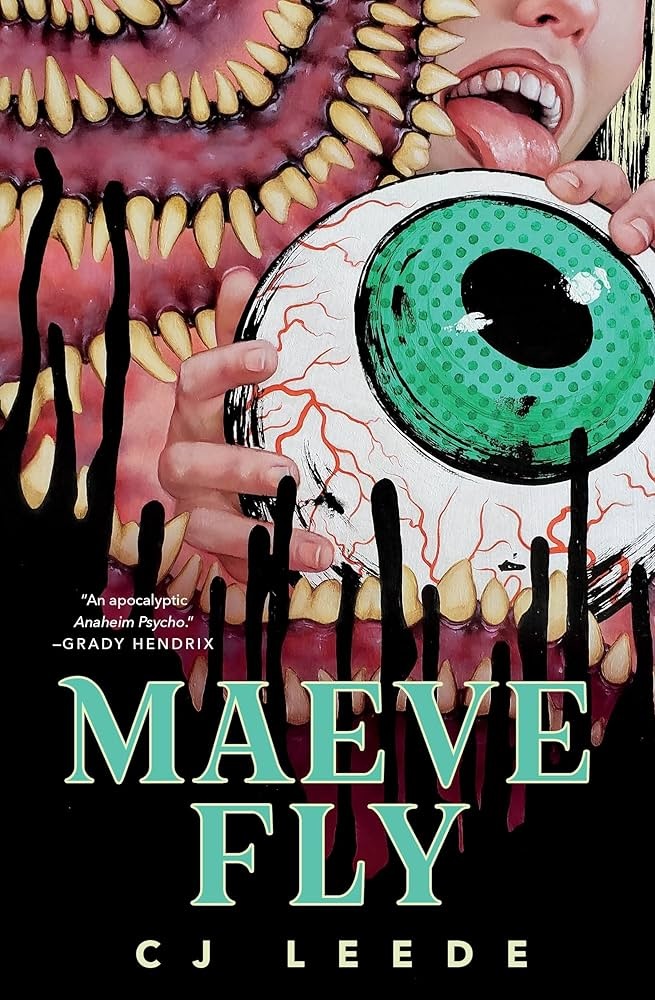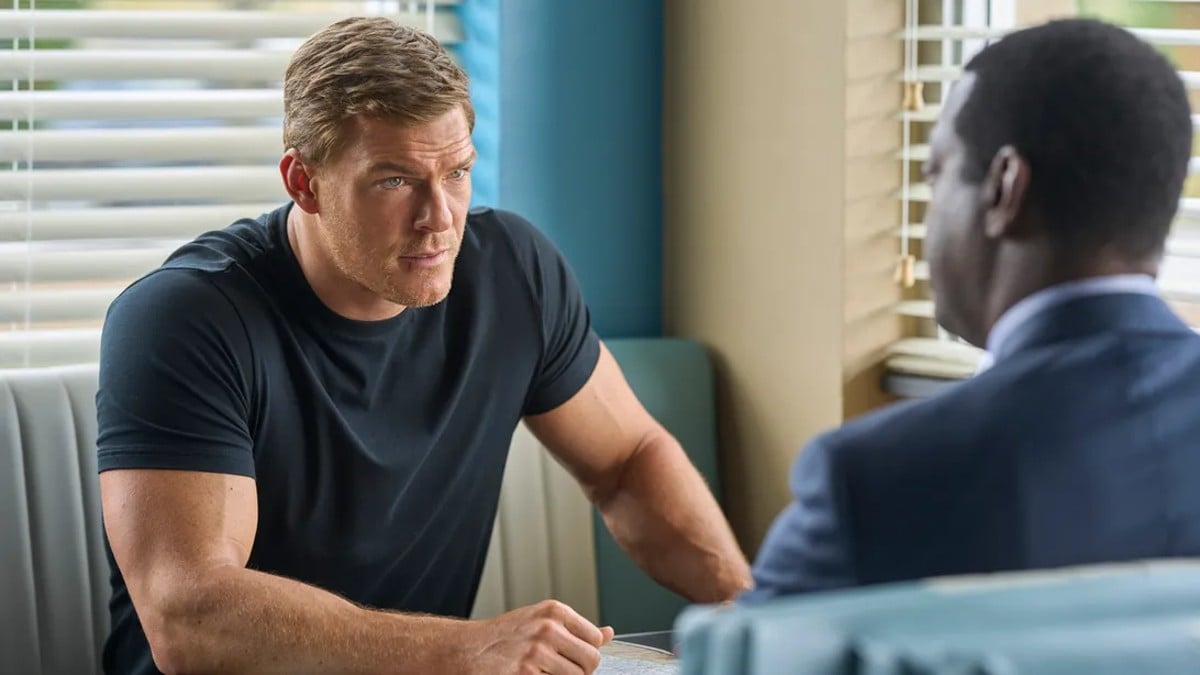Maeve Fly, the horror novel by writer CJ Leede, threads a fascinating needle: its titular main character is both charismatic and terrifying, and its setting seamlessly shifts from glitzy to gory. Somehow, Leede has managed to create a character who’s so monstrous, you can’t help but love her.
In Maeve Fly, Maeve, the granddaughter of a Hollywood starlet, spends her days dressing up as a fairy tale princess at a theme park, and her nights taking in the Los Angeles bar scene. However, Maeve is hiding a dark secret—and when her grandmother falls ill, it gets harder and harder for Maeve to keep it in.

We sat down with Leede to talk all things Maeve, along with Leede’s upcoming novel American Rapture!
This interview has been edited for length and clarity.
Julia Glassman (TMS): How did Maeve Fly come about?
CJ Leede: Maeve came about when I moved to L.A. from New York. I panicked and thought that I’d made a big mistake, but then I started reading about the city. I was dealing with a lot of grief and other things in my personal life, and I found that grief can turn into rage, but I found a way to channel it that felt productive and fun.
TMS: How did all the details come together? Because you pull together so much in this novel. There’s the landscape of Los Angeles, the theme park that’s, uh, similar to but legally distinct from Disneyland…
Leede: (Laughs) It’s a park that exists or doesn’t exist in Anaheim. A reader told me recently that she thought what I do is magpie writing, which I thought was an amazing phrase. With Maeve Fly, the Halloween aspect of the story was just me grasping for something that I loved. [I included] the tiki bar because when we moved, the first thing I knew I loved about L.A. was the bar scene. I love the theme bars.
TMS: Chuck Tingle also just wrote a horror novel set in Los Angeles. What is it about L.A. that makes it a good setting for a horror novel?
Leede: Chuck and I are buds, and I think we both love this city and love to celebrate it. But part of the fun of L.A. is that it’s the place where narratives and fantasy are created. There are fictional characters within this world that writers in L.A. come up with, and then get broadcast everywhere. And there’s something really intoxicating about being in the city in which we create that kind of media.
Also, I had a hard time when we first moved here, kind of reconciling how beautiful it was, but also how much inequality there is, and how some people really don’t live well at all, and some people live the best of anyone on the planet. That dichotomy is everywhere and ever present.
TMS: Let’s talk about Maeve’s character a bit. She does very bad things, and yet she’s such a likable, sympathetic character. How did you strike that balance between showing this very disturbing side of her, but also making her someone the reader could genuinely root for?
Leede: I think the people who love Maeve and find something there that’s redeeming are people who really value loyalty. Maeve’s whole thing is that she’ll do anything for the people she loves, however misguided. I also didn’t want her to be a nihilistic killer. I wanted her to be somebody who loved things and had passions and interests. As a millennial, we’re so all about our things, right? We grew up with our Myspaces, where we could share what our song was or what we were listening to, and that’s so much of how we’ve learned to express ourselves in our strange pocket of time.
TMS: Let’s talk about American Rapture. What’s this book about?
Leede: American Rapture is about a 16-year-old, very sheltered Catholic girl in Wisconsin whose brother has been taken. As she starts to come into her sexual awakening in a very lonely, isolated life, America explodes with a sexually violent, sexually propagating virus epidemic. She has to cross the state of Wisconsin to get her brother while the world around her is basically Dante’s second circle of Hell.
TMS: Post-apocalyptic literature is very big right now—it’s obviously tapping into something we’re all feeling. How do you see this book fitting into the broader landscape of post-apocalyptic fiction?
Leede: Well, something interesting happened recently. A buddy of mine, Clay McLeod Chapman, has a book coming out in January called Wake Up and Open Your Eyes, and we were reading each other’s books and we were like, ‘Oh my god, they’re really similar.’ And, I mean, they’re very different—they’re each their own books—but it was eye-opening for us because it made us realize that there’s something here that we’re grappling with.
Specifically, I love Americana culture. I love roadside Americana: our highways, trails, motels, signage, diners. I think that’s a beautiful thing about America. And it frankly should be an uncomplicated thing, but certain types of people claim it as theirs, and other people don’t feel that they can as much. But most of American Rapture is speaking out against the church. It’s about the ways in which we teach young girls that their bodies are all they’re worth, but at the same time their greatest sin and shame. And I think that’s a horrific and impossible way for us to grow up here.
TMS: What draws you to the horror genre on a broader level?
Leede: I’m somebody who’s been afraid of things my whole life. I have nightmares every time I close my eyes. I’ve found that writing these stories down, and reading other people’s work, becomes a very cathartic experience. Somebody once told me that in times of the greatest political turmoil, horror and comedy tend to sell very well. I think there’s a lot to be said for horror as release, as letting up on that pressure valve. And there’s so much diversity in horror. Everybody gets a voice.










Published: Aug 11, 2024 03:23 pm